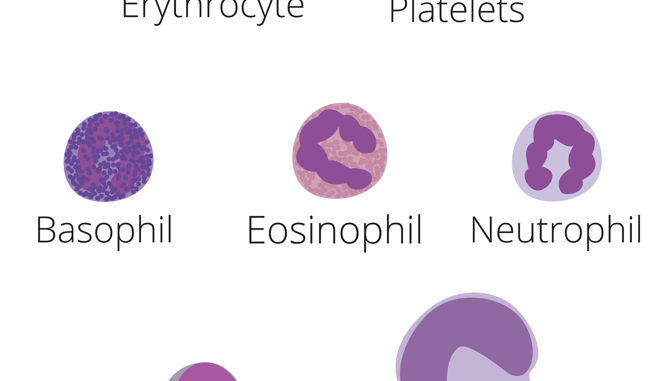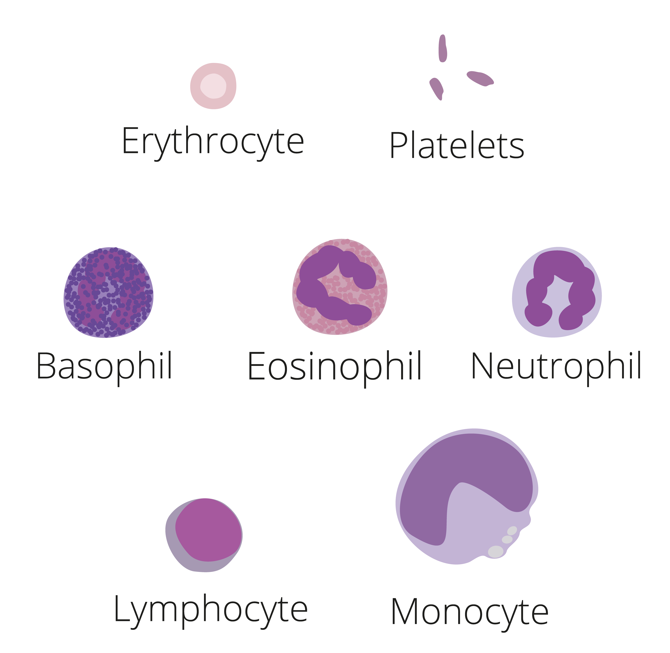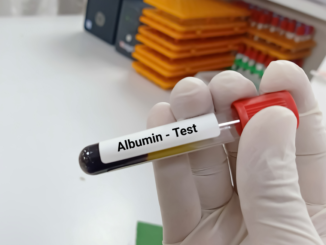
Neutrophils are a type of white blood cell; it is estimated that they make up about 50 to 70 percent of an individual’s white blood cells. Doctors use the absolute neutrophil count (ANC) to track the concentration of neutrophils in a person’s body. ANC is a blood test that measures the number of neutrophils present in one cubic millimeter of a person’s blood.
White blood cells are responsible for protecting the body from foreign substances and illnesses. It is possible that the immune system will be affected if there are reduced concentrations of neutrophils in the body. If they are high, it may be an indication of something concerning your health.
Neutrophils are released in larger amounts when a person has an injury, an infection, an inflammation, or some kind of illness. Neutrophils are the first body defense cells to be released when an individual has an infection, an injury, stress, or some other kind of medical condition. So, if there are high neutrophil counts in blood, it means something is going on in the body.
Neutrophils are very crucial for the defense of the body unlike some other leukocytes because they are not limited to certain areas of circulation. You can find them everywhere in the body, they move freely even through walls of veins to enter the tissue of the body to invade any antigens they come across.

Absolute Neutrophil Count (ANC)
Doctors order for absolute neutrophil count (ANC) to help get clues about the health of an individual. An ANC tests is in most cases ordered when doctors are doing complete blood count (CBC) test with differential. Since the CBC test measures the concentration of cells found in the body, a doctor may order an ANC during the CBC test to help in the following:
- Help diagnose an illness or health condition
- To screen an individual for a number of health conditions
- To monitor the status of an individual if they have an existing disease. This helps to show how they are responding the medication. It can also be done to check how a patient is responding to chemotherapy.
In situations where the ANC is seen to be normal, the doctor may want to have the blood test repeated several times over a certain period. This allows them to monitor any changes in concentrations of neutrophils in body as indicated by the neutrophil count.
When conducting the tests a phlebotomist draws small amount of blood from an individual’s vein in the arm. It can be done in the lab or a doctor’s office. The blood is then taken to the laboratory for evaluation before the results are send to the doctor. Having certain health conditions may affect the results of a person’s blood tests, so you may want to let the doctor know about conditions like pregnancy or chemotherapy, a recent infection, a recent surgery, corticosteroid therapy, radiation therapy, chemotherapy, HIV, and anxiety.
Normal Levels of Neutrophils
The findings of the ANC test can be different based on the laboratory where they were conducted, as well as the subject’s age, gender, heritage, altitude, and the instruments that were used to analyse the specimens.
About 1,500 to 8,000 neutrophils, also written as 1.5 to 8.0 neutrophils per microliter, constitute the adult normal cell count for neutrophils (mcL).
According to differential readings, the adult normal range for the percentage of neutrophils in total while blood cells is between 45 to 75 percent.
Low Levels of Neutrophils
When the readings are below 1.5 mcL or when they make up less than 45 percent of the total white blood cells, a patient is said to have low levels of neutrophils.
When the neutrophil count is between 1.0 and 1.5 mcL, the condition is categorized as being mild. When the neutrophil count is between 0.5 and 1.0 mcL, the condition is categorized as having relatively low levels.
A value of less than 0.5 mcL indicates extremely low numbers of neutrophils in the patient’s blood.
High Levels of Neutrophils
If the results of the test show that there are more than 8000 neutrophils per mcL or 8.0 mcL, this indicates that there are large quantities of these white blood cells present in the body of the individual being tested.
Elevated Neutrophils in Blood – Causes
The medical term for the condition in which a person’s blood contains a disproportionately large number of neutrophils is referred to as neutrophilia.
If a person has this symptom, it is a sign that they have a medical condition, an infection, an injury, or inflammation.
It is also possible that it is an indicator of an underlying ailment, such as surgery, high levels of stress, smoking cigarettes or even sniffing tobacco, heart attacks, steroid use, chronic myeloid leukemia, or extreme exercise.
Lithium, corticosteroids, and carbonate are just a few examples of the kinds of medications that might cause an increase in the number of neutrophils seen in the blood.
When a person is under a great deal of mental or emotional strain, their immune system produces a greater number of neutrophils to aid in the battle against any potential pathogens.
The stress could be brought on by a number of factors, including exercise, pregnancy, or emotional strain.
When you engage in strenuous physical activity, your body produces about eight times the normal number of neutrophils. When these neutrophils reach the tissue, they may determine that there are no pathogens present in the area and, as a result, they perish, which provides the muscles with additional nutrition.
Causes of Low Neutrophil Levels
The term given to low levels of neutrophils in body is neutropenia, and in most cases, it is associated with drugs or medications people are taking, however, at other times, it could indicate a sign of an illness or other factors. People may have neutropenia or low neutrophil concentrations in blood if they:
- Take drugs like those for chemotherapy
- Have suppressed immune system
- Have aplastic anemia
- Are experiencing bone marrow failure
- Have leukemia
- Have sepsis
- Suffer from HIV/AIDS
- Have hepatitis A,B, or C
- Have febrile neutropenia – a medical emergency
- Suffer from congenital disorders like Kostmann syndrome or cyclic neutropenia
- Have autoimmune diseases like rheumatoid arthritis
- Suffer from myelodysplastic syndromes
Conditions that damage or destroy neutrophils in the blood may contribute to low counts of neutrophils and they inclthe ude use of medications like antibiotics and hypersplenism in which the spleen is abnormal; something that causes blood cell destruction. Autoimmune disorders like rheumatoid arthritis also destroy neutrophils in the blood leading to neutropenia.
When people have a neutrophil count that is below 1,500 per mcL, they are at risk of having infections. Having extremely low levels of neutrophils could result in life-threatening infections because the body may not be able to fight off the infections.
In essence, the number of neutrophils you have in blood may show clues about your health status. It could mean you have an infection in your body, or you are having stress that is triggering an increased amount of neutrophils in blood. It could occur as a symptom of an illness. Low neutrophils can last for a couple of weeks or be chronic depending on the cause. It is also possible that low neutrophil counts are a sign of a condition you have or a disease. Your immune system is weakened when you have low counts of neutrophils in the blood and if not checked, it can result in serious, life-threatening infections.
Depending on the results of the ANC test and other tests ordered by a doctor, as well as the past medical history of the patient, a doctor can come up with a treatment plan to treat the cause of the low or high neutrophil counts. Remember that both high and low neutrophils in blood can indicate a disease or an illness. Sometimes, it could just be a response to the state of the body for example, after having surgery, or when your body is undergoing stress.
Authoritative Clinical References
Neutrophil – A Cell with Many Roles in Inflammation or Several Cell Types? https://www.ncbi.nlm.nih.gov/pmc/articles/PMC582608




Be the first to comment